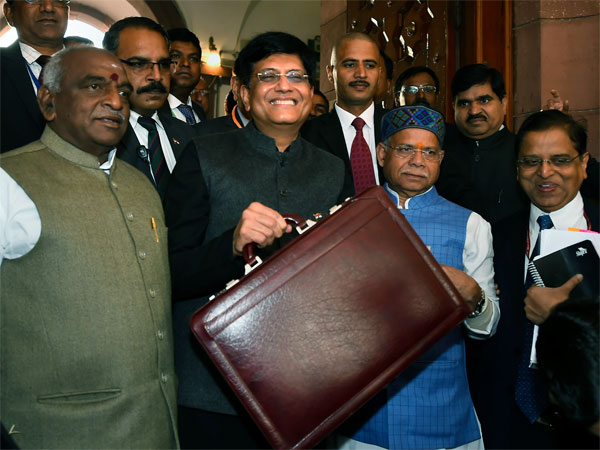
An interim budget that seeks a potential electoral dividend
In an election year, when the ruling party faces a stiff challenge from the opposition, the interim budget was bound to have patently visible political overtones. Interim Finance Minister, Piyush Goyal has not disappointed in this regard. By no stretch of imagination is there anything interim about this budget. It is wholesome in its sops and promises and categorically aims at swaying voter sentiments in a decisive electoral battle.

This election focused budget focuses on three important constituencies, the middle class, the land owning farmer and the rural power. When Prime Minister Modi led the BJP to a historical electoral victory in 2014, the support of the middle class was critical to their good performance. The CSDS-Lokniti National Election Studies (NES) estimate that the Indian middle class could well account for thirty percent of the eligible voters. While many of them are not very enthusiastic to come out and vote, the interim budget aims at swaying this segment towards the ruling party. The raising of the income tax ceiling and the benefit of rollover of capital gains being increased from investment in one residential house to two, certainly aims at the middle class. Yet, the question remains, that given the cynicism and negativism that is visible in typical middle class attitudes, will this be enough to keep the middle class happy and satisfied. Also, is this not a concession that has come a little too late, with the earlier budgets presented by this government doing very little to respond to middle class aspirations.

CSDS-Lokniti data with regard to the 2014 National Election study shows that the BJP enjoyed a social funnel of support, wide among the socially and economically affluent and narrow among the socially and economically disadvantaged. The State Assembly elections since 2014, continue to broadly reflect the same trend. This budget has made one final attempt to reach out to the socially and economically marginalised segments of society.
The budget has made a grand announcement of a staggering Rs 75,000 crores farmer income support programme. Farmers who have less than two hectares of land would receive Rs 6000 each year´ (Pradhan Mantri Kisan Samman Nidhi). This is expected to have spin-off benefit for agriculture related industry. Three issues merit attention in this regard. Would small and marginal farmers see a benefit of Rs 500 per month as enough of a benefit to overcome rural distress? Secondly, identifying such farmers will be quite a complex and tricky task. Thirdly, the most adversely effected by rural distress is the agricultural labourer for whom there is very little tangible and visible as support.
One could argue that the pension programme for the informal sector workers with incomes below Rs 15,000 would address the hopes and aspirations of the labour force in rural India. Yet, lets remember that this is a post retirement scheme and does not assure any direct and immediate benefit in the run up to the elections. Its capacity to sway voter sentiment is thus limited.
The government has conceded that its projected fiscal deficit of 3.4% of GDP, is on account of the new expenditures for farm income support. This has come as a road block on the pathway to fiscal consolidation.
Past experience has shown that budgetary concessions made especially in an election year, do little to sway the mood of the voter. Changes initiated in the initial years of coming to office when properly implemented, could well result in a positive sentiment being expressed by the voter who has actually been a beneficiary. It would be interesting to see whether the concessions announced in this years budget can actually be efficiently and effectively implemented well before the voter presses the EVM button on election day.

Would the genuine beneficiary be targeted and be swayed by what is received or would many of those who see themselves as potential beneficiaries see themselves as being deprived of their legitimate dues? An election year gamble could well pay off the ruling party handsome electoral dividends but could also be unexpectedly counter-productive and boomerang badly. We need to wait till May to get our answers!
(Dr Sandeep Shastri is a leading political scientist and Pro Vice Chancellor, Jain University)
Disclaimer: The opinions expressed in this article are the personal opinions of the author. The facts and opinions appearing in the article do not reflect the views of OneIndia and OneIndia does not assume any responsibility or liability for the same.


 Click it and Unblock the Notifications
Click it and Unblock the Notifications

































